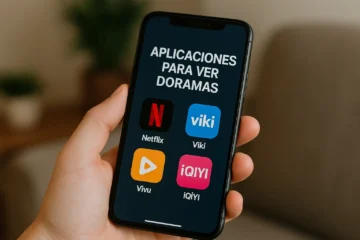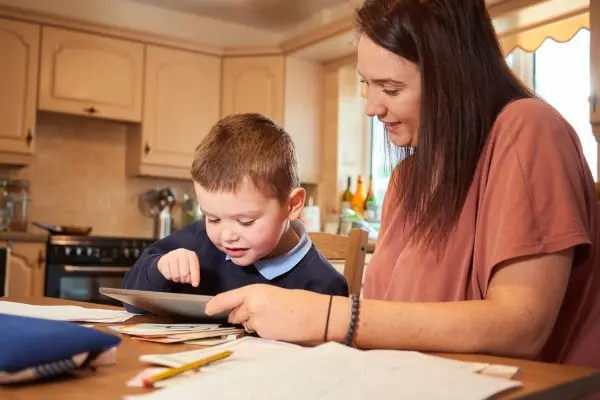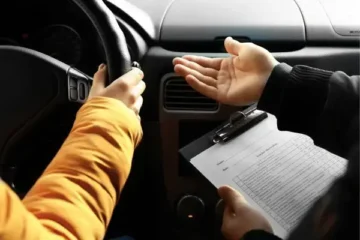How to apply for resources for single mothers from the government
Advertisement advertisements
Find out how to apply resources for single mothers to the government and obtain financial support in your country easily.
How to apply for resources for single mothers from the government
Resources for single mothers are essential to support women who are caring for their children without the help of a partner or sufficient financial support.
These resources not only provide financial assistance, but also access to social, educational and health programs aimed at improving the quality of life of these families.
In many countries, such as Colombia, Mexico, Spain, Peru and the United States, governments have implemented programs specifically designed to help single mothers overcome the economic and social difficulties they face.

Step-by-step to apply for resources for single mothers
The process for applying for resources for single mothers may vary slightly depending on the country you are in, but in general, the steps are similar for all programs. By following this step-by-step, you can ensure that you complete the process correctly:
1. Research the programs available in your country.:
Each country has specific programs for single mothers.
To get started, it is important to research on official government websites or at social assistance offices what programs are active and what kind of support they offer.
Some countries, such as Mexico and the United States, have multiple options, so it is important to select the one that best fits your situation.
2. Gather the necessary documentation:
Once you identify the program you wish to apply to, you will need to gather all the required documents.
In most cases, you will need to present your official identification, your children's birth certificates, proof of income (or a statement showing your financial situation) and, in some cases, documentation confirming your children's school attendance.
3. Complete the registration:
Many programs allow registration to be done online through official government platforms, which facilitates the process.
In other cases, you will need to go to a local welfare office.
Be sure to complete all forms with verified and accurate information, as errors in documentation can delay the approval process.
4. Check registration deadlines:
It is vital that you inquire about the registration deadlines for each program, as they are often subject to specific dates.
If you miss the deadline, you may have to wait until the next call.
5. Wait for the confirmation of your application:
Once you have completed the registration process, you will have to wait for the authorities to review your application.
The response time varies depending on the country and program, but generally you will be informed if you have been accepted or if any additional documents are missing.
6. Receives resources:
If your application is approved, you will receive the funds through the means indicated, either by bank transfer, checks or government-issued benefit cards.
This step-by-step will help you better understand the process and ensure that you are on the right track to receive the resources available to single mothers in your country.
Step-by-step summary
- Research the programs available in your country
- Gather the necessary documentation
- Complete the registration
- Check registration deadlines
- Wait for confirmation of your request
- Receives resources
About the program for single mothers
The main objective of the programs for single mothers is to provide assistance to those women who, due to the lack of a partner or unfavorable economic situations, are unable to support their children on their own.
These programs cover a variety of needs, including financial support for food, housing, education and health expenses.
In addition, some programs offer psychological assistance and job counseling, helping single mothers to improve their skills and eventually find employment or improve their income.
A fundamental aspect of these programs is that they not only focus on providing immediate resources, but are also designed to promote the long-term autonomy and well-being of mothers and their children.
This is achieved through the integration of complementary services such as educational scholarships, free medical care or entrepreneurship counseling.
How to receive the benefits of resources for single mothers
In order to receive the benefits of the programs for single mothers, it is essential to carefully follow the steps indicated in the application process and comply with the established requirements. Once your application has been approved, you will receive the resources through different modalities:
- Bank transferMost programs use direct transfers to bank accounts to deliver funds. It is recommended that you have a bank account in your name to facilitate the process.
- Checks or vouchersIn some countries, benefits are delivered through checks that can be cashed at any bank. Other programs choose to distribute vouchers or coupons that can be exchanged for commodities.
- Debit cardsIn some cases, prepaid debit cards are provided that single mothers can use to make purchases at selected supermarkets and stores. These cards are programmed to be automatically reloaded each month.
It is important that you pay attention to the terms and conditions to avoid delays or inconveniences in receiving the benefits.
On the payment of benefits to single mothers
Benefit payments may vary from program to program. In some cases, payments are made monthly, while in others they may be made quarterly or even annually.
It is essential that you check the payment schedule to ensure that you receive support when you need it most.
In general, the payments are intended to cover basic necessities, such as food, education and health care for the children.
In some countries, specific housing or transportation allowances are also included, depending on the particular circumstances of each mother.
Value available to receive in single mother programs
The amount of resources you can receive as a single mother varies depending on the country and the program to which you apply. Below, we give you an idea of the amounts offered by some of the most prominent programs:
- Spain: Single mothers can access a benefit of up to 500 euros per month through the Minimum Living Income, as long as they meet the low income requirements.
- ColombiaIn Colombia, the Familias en Acción program provides about 145,000 Colombian pesos per month to single mothers from vulnerable families.
- MexicoIn Mexico, the Becas para el Bienestar program offers up to 1,600 pesos per month to single mothers, mainly those studying or living in extreme poverty.
- United StatesThe TANF (Temporary Assistance for Needy Families) program in the United States offers between $200 and $500 per month, depending on the state where you live.
It is important that you check the details of the program in your country to find out how much you can receive and what the payment terms are.
Who is eligible for single mother's resource benefits?
In general, the benefits are intended for mothers raising children without financial support from a partner or other relatives.
This includes women who are in vulnerable situations, either because they are unemployed, work in informal jobs or have low incomes.
In addition, divorced or widowed mothers may also qualify for these resources if they meet the financial requirements established by the program.
In some countries, young mothers who do not receive support from their children's fathers are also eligible for these benefits.
Requirements to receive resources for single mothers
In order to access the resources offered by government programs for single mothers, it is necessary to meet certain basic requirements.
These vary by country, but broadly include the following:
- Be a single mother with dependent children under 18 years of age.
- Have insufficient income to meet the basic needs of your household.
- Present documents that certify your financial situation, such as proof of income, poverty certificates or tax returns.
- In some cases, demonstrate that your children attend school regularly or receive adequate medical care.
It is critical to meet all of these requirements to ensure that your application is approved and you can receive benefits in a timely manner.
Importance of resources for single mothers
Resources for single mothers play a vital role in the economic and social stability of many families.
For many women, raising children without financial support is a difficult burden to manage, and government assistance programs are one way to alleviate that pressure.
Moreover, these programs not only improve the immediate economic situation of mothers, but also have a long-term positive impact on the health and education of their children.
By ensuring that children receive adequate nutrition and access to education, these programs help break the cycle of poverty that often affects single-parent families.
Important considerations when applying for resources for single mothers
When applying for these resources, it is important that you consider some key aspects to ensure that your application is approved:
- Check registration deadlinesBe sure to submit your application by the deadline set by the program. If you miss the deadline, you may have to wait until the next call for applications.
- Gather all necessary documentationHaving the right documents from the beginning will help you avoid delays in the approval of your application.
- Keep your information up to dateIf your financial or family situation changes after you have been accepted into the program, you must notify the authorities immediately to continue receiving benefits.
Applying for resources for single mothers is an opportunity to improve the quality of life of many families facing economic hardship.
By following the right steps and meeting the requirements, single mothers can access essential support that will allow them to ensure the well-being of their children and a more stable future.
Aid programs not only offer financial assistance, but also provide complementary services that contribute to the integral development of the family in countries such as Spain, Colombia, Mexico, Peru and the United States.





